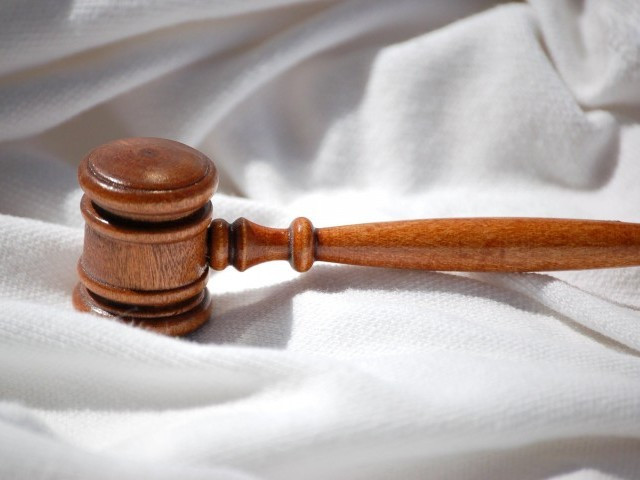Judges appointment: SHC turns down decision of parliamentary committee
Two additional judges declared as confirmed judges.

A full bench of the Sindh High Court on Monday set aside a decision by the parliamentary committee for the appointment of judges and ordered that the recommendations of the Judicial Commission be implemented confirming Justice Ghulam Sarwar Korai and Justice Irfan Sadat Khan as judges of the high court.
Announcing the judgment, reserved about two months back, the full bench comprising Justices Maqbool Baqar, Faisal Arab and Sajjad Ali Shah declared that the impugned “decision by the parliamentary committee suffers from illegality, irrationality and procedural improprietary.”
Allowing the petitions filed by high bar associations of Karachi and Sukkur in which the two judges also became interveners, the bench held that the “decision of parliamentary committee was not in accordance with the provisions of the Constitution.”
The controversy arose when the parliamentary committee constituted under Article 175-A of the Constitution, refused to confirm the unanimous recommendations made by the Judicial Commission in its meeting of August 27, 2011 after thorough deliberations on professional caliber, competence, legal acumen, antecedents, commitment and devotion to the duty and efforts made for expeditious disposal of cases by six additional judges.
The Judicial Commission also considered the evaluation report submitted by Justice Nasirul Mulk and unanimously recommended the names of all the six additional judges, including Justice Ghulam Sawar Korai and Justice Irfan Sadat Khan, as confirmed judges.
However, the parliamentary committee in its meeting on September 8 and 9, 2011, recommended names of four judges but dropped the names of Justice Ghulam Sarwar Korai and Justice Irfan Sadat Khan. The two bar associations assailed the parliamentary committee’s decision through separate petitions. The main petition filed by high court bar association of Sukkur was argued by Dr Farogh Naseem while the second petition high court bar association of Karachi was argued by Anwar Mansoor Khan.
Former Attorney General Barrister Makhdoom Ali Khan filed an application later on behalf of the two judges to become intervener. The federal government was represented by Deputy Attorney General Ashikue Raza.
Arguing the case of judges, Barrister Makhdoom submitted that decision of the parliamentary committee is without jurisdiction and it went beyond its well prescribed area of competence. He maintained that after a number of petitions pertaining to the appointments and confirmation of judges and judgments therein, it is now well settled that question of professional caliber, competence and overall suitability of a potential nominee falls within the exclusive domain of the Judicial Commission.
Questioning the basis of the decision of the parliamentary committee, he maintained that it was based on erroneous reading of the Constitution and that it was based on certain remarks of the Chief Justice of the high court contained in the attached proforma.
Dwelling on the functions of the Judicial Commission and parliamentary committee about the appointment of judges, the counsel for the two judges maintained that mechanism devised under Article 175-A is to benefit from the collective wisdom of the two bodies.
Referring to the remarks against two judges, he maintained that “certain preliminary remarks and opinions expressed by any one member of the Judicial Commission can not be used as a pretext for refusing to accept the unanimous decision of the Judicial Commission.
In his concluding arguments, Barrister Makhdoom said that parliamentary committee’s decision erodes cardinal principle of independence of judiciary and separation of powers. He also questioned the value of reports by ISI and IB in respect of his clients and said these were not substantiated or supported by any material. Dr Farogh Naseem adopted the arguments forwarded by the counsel for two judges.
Deputy Attorney General, Ashikue Raza while defending the decision by parliamentary committee said that public airing of the reasons or remarks would undermine the independence of judiciary and even if proved negative, the allegations against the two judges will continue to haunt them in future.
He pleaded to the Court to observe a restraint and dismiss the petitions as the decision by the parliamentary committee was justified and lawful.
The bench in its judgment announced on Monday discussed the functions and roles of the Judicial Commission and the parliamentary committee. It also mentioned the composition of the two bodies and said that “judicial consultees” are best suited to determine the suitability of the appointees while executive functionaries were considered best suited for ascertaining the antecedents of judicial appointees.
The bench also held that under new and amended law, both the president and prime minister have now been left with nominal ministerial roles and powers.
The Prime Minister is now obliged to simply forward the confirmation made to the President and the President equally is obliged to make appointment on the basis of such confirmation. The collective decision of the Judicial Commission over rides the individual opinion of any one member of the Judicial Commission, the judgment said.
The bench then allowing the petitions ordered respondent federal law ministry to issue a notification confirming the two additional judges as confirmed judges of the Sindh High Court. With the addition of these two judges, the strength of the high court will now be 19 against a sanctioned strength of 40.
Published in The Express Tribune, June 12th, 2012.



















COMMENTS
Comments are moderated and generally will be posted if they are on-topic and not abusive.
For more information, please see our Comments FAQ